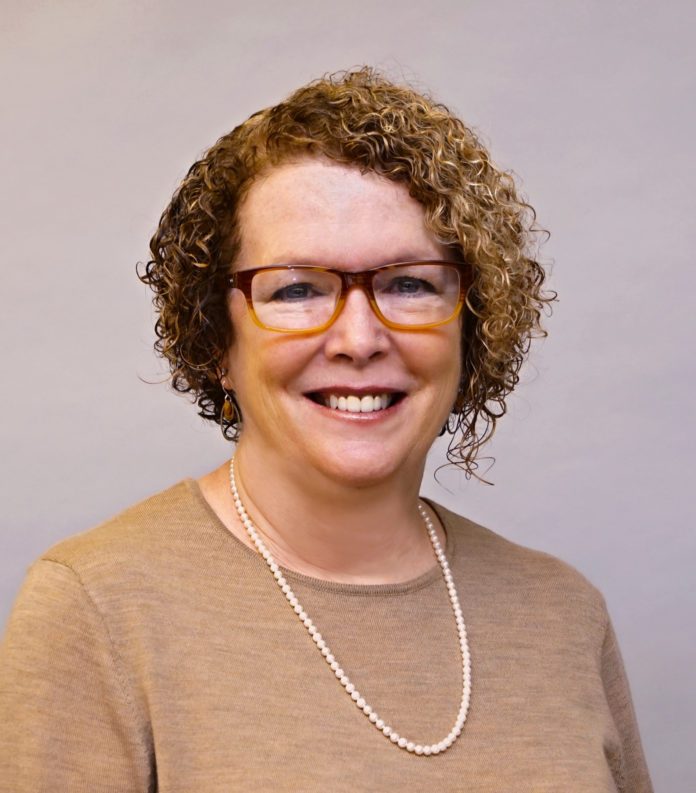Linda Hunter, certified nurse midwife in the Midwifery Program in the Department of Obstetrics and Gynecology at Women & Infants Hospital, was recently appointed president-elect of the American Midwifery Certification Board by the organization.
Hunter, also an assistant professor of obstetrics and gynecology at the Warren Alpert Medical School of Brown University, will lead the American Midwifery Certification Board in 2019, serving a three-year term. She begins Jan. 1.
Providence Business News asked Hunter about her career and her plans as leader of the organization.
PBN: Please tell us about midwifery’s history and how the profession is regulated in Rhode Island.
HUNTER: The word “midwife” means “with woman” and stories about midwives have been around for thousands of years, even the Bible. In the U.S., midwifery’s history began in Colonial times with the black granny midwives of the South, who still provide midwifery care to underserved women. Later, in the early 20th century, midwifery was combined with nursing as a means to provide both basic health care and midwifery services to the rural poor women in Kentucky. In Rhode Island, midwives are regulated by the Department of Health and the Advisory Council of Midwifery. There is a state statute and rules and regulations for the licensing of midwives in Rhode Island.
PBN: Can you describe your duties as president of the American Midwifery Certification Board?
HUNTER: The mission of the AMCB is to protect and serve the public by leading the certification standards in midwifery. All certified nurse-midwives and certified midwives in the U.S. must pass the AMCB certification exam and participate in ongoing continuing education requirements to practice in the U.S. My job as president is to work with the AMCB CEO and board of directors to support these programs, represent the AMCB at other national midwifery and nursing organizations, and oversee any disciplinary cases involving CNMs or CMs.
PBN: What is the difference between a certified nurse-midwife and certified midwife?
HUNTER: Essentially, CNMs and CMs have the same midwifery education – master’s degree from accredited midwifery programs, take the same AMCB certification exam and have the same scope of practice. The only difference is that CMs do not have a registered nursing degree prior to entering graduate education. Both CNMs and CMs are licensed in R.I.
PBN: How many midwives are licensed in Rhode Island?
HUNTER: According to the Rhode Island Department of Public Health website, there are around 80 CNMs and CMs licensed in R.I.
PBN: Please share your favorite story about your experience as a midwife.
HUNTER: In my 24 years as a nurse-midwife, I have been blessed to participate in some of the most beautiful births. Pregnant women are truly amazing, and I have been so fortunate to witness their incredible strength and resilience.
I think my very favorite births have been boisterous joyful “family affairs.” Everyone is crying and it’s almost as if the woman transfers all of her power and love to everyone in the room. In my current role here at Women & Infants, this is such an important part of being present at a birth. I tell the residents and medical students all the time to “savor the moment!”
Rob Borkowski is a PBN staff writer. Email him at Borkowski@PBN.com.











